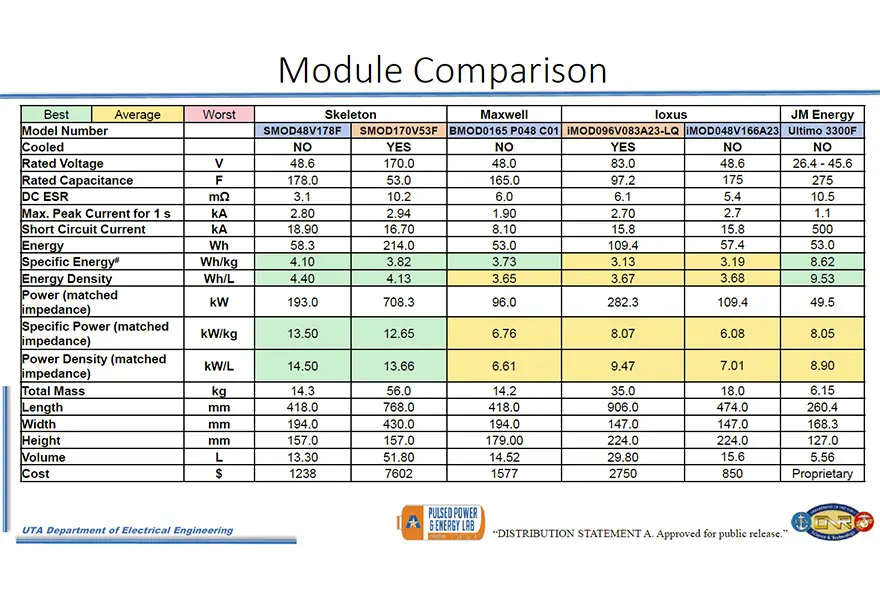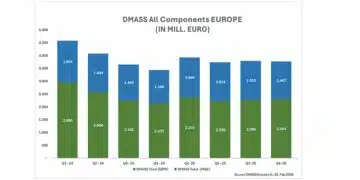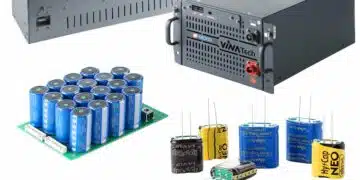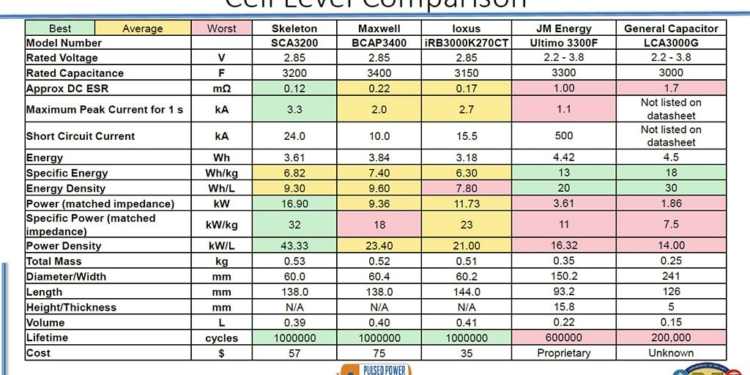Source: Skeleton news
United States Office of Naval Research has commissioned a study of ultracapacitors, titled “Characterization of Ultracapacitors for Transient Load Applications“, to assess the suitability of ultracapacitors in applications demanding high transient power.
The tests, conducted Dr. David Wetz and his team at the University of Texas at Arlington, included cells from Skeleton Technologies, Maxwell Technologies, and Ioxus Inc., as well as lithium-ion cells from JM Energy and General Capacitor. In addition to cells, tests were conducted on modules from Skeleton, Maxwell, Ioxus, and JM Energy.
Interestingly for Skeleton, and in accordance with our and our customers’ testing and experience, the SkelCap cells outperformed the competing ultracapacitors in various tests – SkelCap cells have the:
- Lowest ESR, or Equivalent Series Resistance
- Highest maximum peak current for 1 second
- Highest power (matched impedance)
- Highest specific power (matched impedance)
see the featured image for test results
The story is similar in the module testing, where Skeleton’s SkelMod 51V and SkelMod 170V modules provided the highest specific energy, as well as highest specific power and power density when compared to Maxwell and Ioxus modules.
In addition, the SkelMod 51V module can run continuously at 50% more power without overheating compared to the Maxwell module. The liquid cooled SkelMod 170V module on the other hand ran 40°C cooler compared to the Ioxus module, providing roughly 16 times longer lifetime. These are examples of significant benefits that have a big impact on real-life applications.

The tests, titled “Study of Ultracapacitors under Pulsed Loading Conditions”, was conducted by University of Texas Arlington’s Pulsed Power & Energy Lab together with The Office of Naval Research, a governmental agency coordinating, executing, and promoting science and technology programs of the US Navy and Marine Corps.































